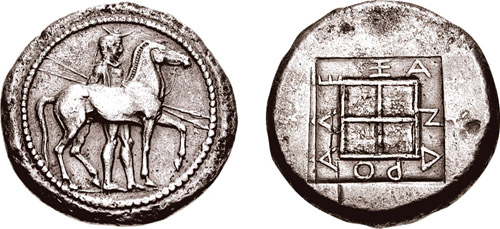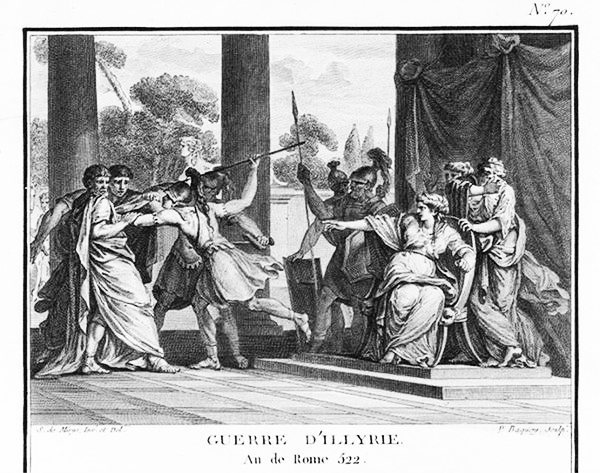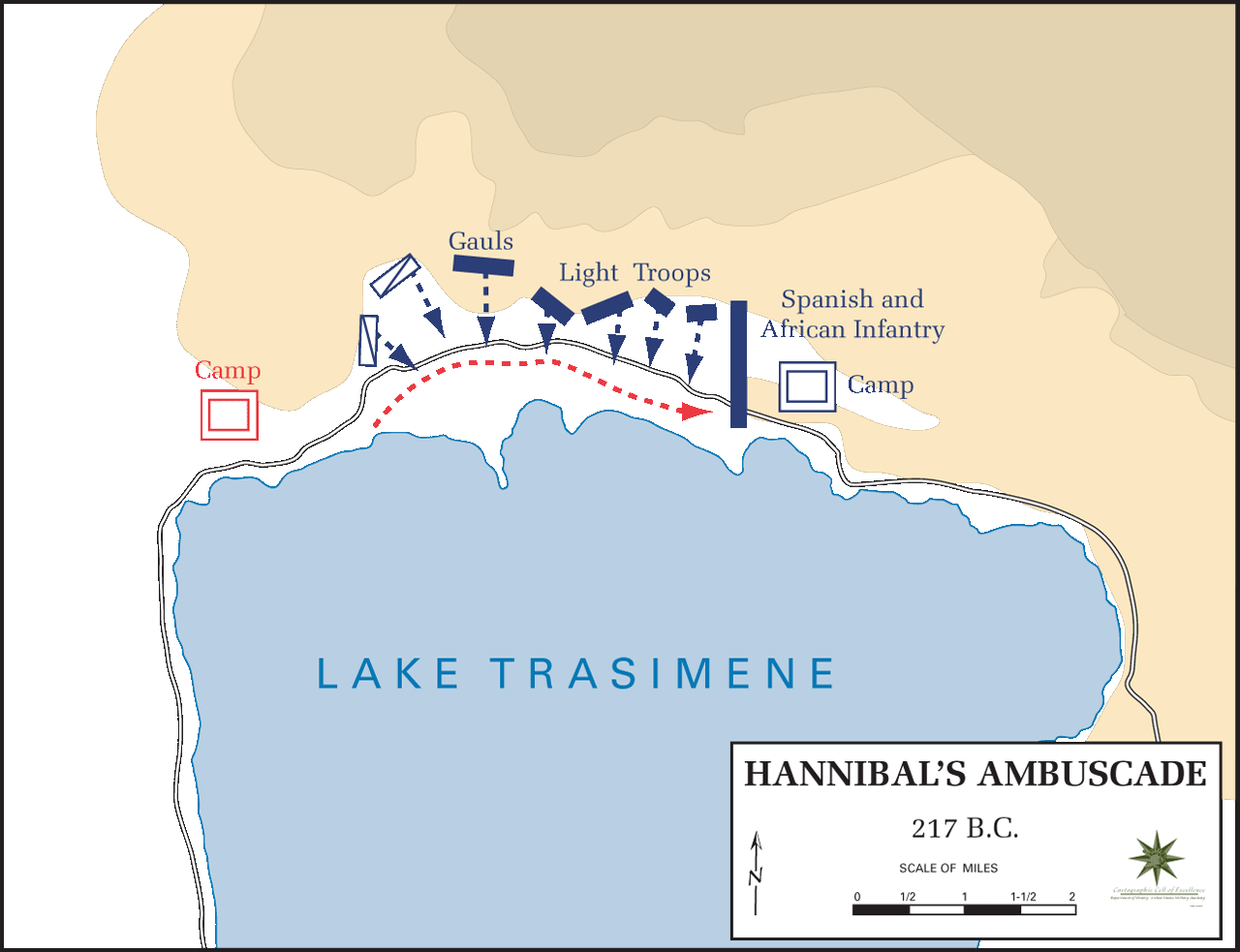|
Social War (220–217 BC)
The Social War, also War of the Allies and the Aetolian War, was fought from 220 BC to 217 BC between the Hellenic League under Philip V of Macedon and the Aetolian League, Sparta and Elis. It was ended with the Peace of Naupactus. Background Many of the tensions which led to the war were later documented by the Greek historian Polybius. The First Illyrian War, in 228, left the Aetolian League greater in size than ever before, and worked to continue expanding in all directions. Its attempt to expand into Thessaly, where Macedon had recently collapsed, resulted in a violent reaction from Macedon, the first in almost four decades. That created an unceasing suspicion between the two for years to come. During the Cleomenean War in the mid 220s, a new alliance had emerged among Macedon, the Achaean League, the Epirote League, the Boeotian League and Acarnania, which became known as the Hellenic League, or Symmachy. The first hegemon of the Symmachy was Antigonus Doson, the gu ... [...More Info...] [...Related Items...] OR: [Wikipedia] [Google] [Baidu] |
Peloponnese
The Peloponnese (), Peloponnesus (; el, Πελοπόννησος, Pelopónnēsos,(), or Morea is a peninsula and geographic regions of Greece, geographic region in southern Greece. It is connected to the central part of the country by the Isthmus of Corinth land bridge which separates the Gulf of Corinth from the Saronic Gulf. From the late Middle Ages until the 19th century the peninsula was known as the Morea ( grc-x-byzant, Μωρέας), (Morèas) a name still in colloquial use in its demotic Greek, demotic form ( el, Μωριάς, links=no), (Moriàs). The peninsula is divided among three administrative regions of Greece, administrative regions: most belongs to the Peloponnese (region), Peloponnese region, with smaller parts belonging to the West Greece and Attica (region), Attica regions. Geography The Peloponnese is a peninsula located at the southern tip of the mainland, in area, and constitutes the southernmost part of mainland Greece. It is connected to the mainlan ... [...More Info...] [...Related Items...] OR: [Wikipedia] [Google] [Baidu] |
Ariston (strategos)
Ariston of Trichonion was a '' strategos'' of the Aetolians in 221 BC, who, labouring under some bodily defect, left the command of the troops to Scopas and Dorimachus, while he himself remained at home. Notwithstanding the declarations of the Achaeans to regard every one as an enemy who should trespass upon the territories of Messenia or Achaia Achaea () or Achaia (), sometimes transliterated from Greek as Akhaia (, ''Akhaïa'' ), is one of the regional units of Greece. It is part of the region of Western Greece and is situated in the northwestern part of the Peloponnese peninsula. T ..., the Aetolian commanders invaded Peleponnesus, and Ariston was stupid enough, in the face of this fact, to assert that the Aetolians and Achaeans were at peace with each other. Polybius, iv.5,9,17. References Ancient Aetolians Hellenistic generals 3rd-century BC Greek people Year of birth unknown Year of death unknown Place of death unknown {{AncientGreece-bio-stub ... [...More Info...] [...Related Items...] OR: [Wikipedia] [Google] [Baidu] |
Antigonus Doson
Antigonus III Doson ( el, Ἀντίγονος Γ΄ Δώσων, 263–221 BC) was king of Macedon from 229 BC to 221 BC. He was a member of the Antigonid dynasty. Family background Antigonus III Doson was a half-cousin of his predecessor, Demetrius II Aetolicus. Doson's father was Demetrius the Fair (briefly king of Cyrene), the son of Demetrius Poliorcetes and his third wife, Ptolemaïs, daughter of Ptolemy I Soter and Eurydice, daughter of Antipater. As such, Demetrius the Fair was, on his father's side, a younger half-brother of Demetrius II's father, Antigonus II Gonatas, the son of Poliorcetes by his first wife, Phila, another of Antipater's daughters; as well as a nephew of both Ptolemy Keraunos and Meleager on his mother's side. According to Eusebius, Doson's own mother was a Thessalian noblewoman, Olympias, daughter of Pauliclitus of Larissa. Antigonus also had a brother named Echecrates, whose son, named Antigonus after Doson himself, was put to death by ... [...More Info...] [...Related Items...] OR: [Wikipedia] [Google] [Baidu] |
Ancient Macedonia
Macedonia (; grc-gre, Μακεδονία), also called Macedon (), was an ancient kingdom on the periphery of Archaic and Classical Greece, and later the dominant state of Hellenistic Greece. The kingdom was founded and initially ruled by the royal Argead dynasty, which was followed by the Antipatrid and Antigonid dynasties. Home to the ancient Macedonians, the earliest kingdom was centered on the northeastern part of the Greek peninsula,. and bordered by Epirus to the west, Paeonia to the north, Thrace to the east and Thessaly to the south. Before the 4th century BC, Macedonia was a small kingdom outside of the area dominated by the great city-states of Athens, Sparta and Thebes, and briefly subordinate to Achaemenid Persia. During the reign of the Argead king PhilipII (359–336 BC), Macedonia subdued mainland Greece and the Thracian Odrysian kingdom through conquest and diplomacy. With a reformed army containing phalanxes wielding the ''sarissa'' pike, PhilipII de ... [...More Info...] [...Related Items...] OR: [Wikipedia] [Google] [Baidu] |
Cleomenean War
The Cleomenean WarPolybius. ''The Rise of the Roman Empire'', 2.46. (229/228–222 BC) was fought between Sparta and the Achaean League for the control of the Peloponnese. Under the leadership of king Cleomenes III, Sparta initially had the upper hand, which forced the Achaean League to call for help the Macedonian king Antigonos Doson, who decisively defeated Cleomenes in the battle of Sellasia in 222. In 235 BC, Cleomenes III ( 235–222 BC) ascended the throne of Sparta and began a program of reform aimed at restoring traditional Spartan discipline while weakening the influence of the ephors, elected officials who, though sworn to uphold the rule of Sparta's kings, had by the time of Cleomenes come to wield extraordinary political power in the Spartan system. When, in 229 BC, the ephors sent Cleomenes to seize a town on the border with Megalopolis, the Achaeans declared war. Cleomenes responded by ravaging Achaea. At Mount Lycaeum he defeated an army under Aratus of Sicyo ... [...More Info...] [...Related Items...] OR: [Wikipedia] [Google] [Baidu] |
Macedon
Macedonia (; grc-gre, Μακεδονία), also called Macedon (), was an ancient kingdom on the periphery of Archaic and Classical Greece, and later the dominant state of Hellenistic Greece. The kingdom was founded and initially ruled by the royal Argead dynasty, which was followed by the Antipatrid and Antigonid dynasties. Home to the ancient Macedonians, the earliest kingdom was centered on the northeastern part of the Greek peninsula,. and bordered by Epirus to the west, Paeonia to the north, Thrace to the east and Thessaly to the south. Before the 4th century BC, Macedonia was a small kingdom outside of the area dominated by the great city-states of Athens, Sparta and Thebes, and briefly subordinate to Achaemenid Persia. During the reign of the Argead king PhilipII (359–336 BC), Macedonia subdued mainland Greece and the Thracian Odrysian kingdom through conquest and diplomacy. With a reformed army containing phalanxes wielding the ''sarissa'' pike, PhilipII d ... [...More Info...] [...Related Items...] OR: [Wikipedia] [Google] [Baidu] |
Thessaly
Thessaly ( el, Θεσσαλία, translit=Thessalía, ; ancient Thessalian: , ) is a traditional geographic and modern administrative region of Greece, comprising most of the ancient region of the same name. Before the Greek Dark Ages, Thessaly was known as Aeolia (, ), and appears thus in Homer's ''Odyssey''. Thessaly became part of the modern Greek state in 1881, after four and a half centuries of Ottoman rule. Since 1987 it has formed one of the country's 13 regions and is further (since the Kallikratis reform of 2011) sub-divided into five regional units and 25 municipalities. The capital of the region is Larissa. Thessaly lies in northern Greece and borders the regions of Macedonia on the north, Epirus on the west, Central Greece on the south, and the Aegean Sea on the east. The Thessaly region also includes the Sporades islands. Name and etymology Thessaly is named after the ''Thessaloi'', an ancient Greek tribe. The meaning of the name of this tribe is unknow ... [...More Info...] [...Related Items...] OR: [Wikipedia] [Google] [Baidu] |
First Illyrian War
The Illyro-Roman Wars were a series of wars fought between the Roman Republic and the Ardiaei kingdom. In the ''First Illyrian War'', which lasted from 229 BC to 228 BC, Rome's concern was that the trade across the Adriatic Sea increased after the First Punic War at a time when Ardiaei power increased under queen Teuta. Attacks on trading vessels of Rome's Italic allies by Illyrian pirates and the death of a Roman envoy named Coruncanius on Teuta's orders,Zock, 99. prompted the Roman senate to dispatch a Roman army under the command of the consuls Lucius Postumius Albinus (consul 234 BC), Lucius Postumius Albinus and Gnaeus Fulvius Centumalus. Rome expelled Illyrians, Illyrian garrisons from a number of Greece, Greek cities including Epidamnus, Apollonia (Illyria), Apollonia, Korkyra (polis), Corcyra, Hvar, Pharos and established a protectorate over these Greek towns. The Ancient Rome, Romans also set up Demetrius of Pharos as a power in Illyria to counterbalance the power of Teuta.E ... [...More Info...] [...Related Items...] OR: [Wikipedia] [Google] [Baidu] |
Polybius
Polybius (; grc-gre, Πολύβιος, ; ) was a Greek historian of the Hellenistic period. He is noted for his work , which covered the period of 264–146 BC and the Punic Wars in detail. Polybius is important for his analysis of the mixed constitution or the separation of powers in government, his in-depth discussion of checks and balances to limit power, and his introduction of "the people", which influenced Montesquieu's ''The Spirit of the Laws'', John Locke's ''Two Treatises of Government'', and the framers of the United States Constitution. The leading expert on Polybius for nearly a century was F. W. Walbank (1909–2008), who published studies related to him for 50 years, including a long commentary of his ''Histories'' and a biography. Early life Polybius was born around 200 BC in Megalopolis, Greece, Megalopolis, Arcadia (region), Arcadia, when it was an active member of the Achaean League. The town was revived, along with other Achaean states, a century before he ... [...More Info...] [...Related Items...] OR: [Wikipedia] [Google] [Baidu] |
History Of Sparta
The History of Sparta describes the history of the ancient Doric Greek city-state known as Sparta from its beginning in the legendary period to its incorporation into the Achaean League under the late Roman Republic, as Allied State, in 146 BC, a period of roughly 1000 years. Since the Dorians were not the first to settle the valley of the Eurotas River in the Peloponnesus of Greece, the preceding Mycenaean and Stone Age periods are described as well. Sparta went on to become a district of modern Greece. Brief mention is made of events in the post-classical periods. Dorian Sparta rose to dominance in the 6th century BC. At the time of the Persian Wars, it was the recognized leader by assent of the Greek city-states. It subsequently lost that assent through suspicion that the Athenians were plotting to break up the Spartan state after an earthquake destroyed Sparta in 464 BC. When Sparta defeated Athens in the Peloponnesian War, it secured an unrivaled hegemony over southern ... [...More Info...] [...Related Items...] OR: [Wikipedia] [Google] [Baidu] |
Antigonus III Doson
Antigonus III Doson ( el, Ἀντίγονος Γ΄ Δώσων, 263–221 BC) was king of Macedon from 229 BC to 221 BC. He was a member of the Antigonid dynasty. Family background Antigonus III Doson was a half-cousin of his predecessor, Demetrius II Aetolicus. Doson's father was Demetrius the Fair (briefly king of Cyrene), the son of Demetrius Poliorcetes and his third wife, Ptolemaïs, daughter of Ptolemy I Soter and Eurydice, daughter of Antipater. As such, Demetrius the Fair was, on his father's side, a younger half-brother of Demetrius II's father, Antigonus II Gonatas, the son of Poliorcetes by his first wife, Phila, another of Antipater's daughters; as well as a nephew of both Ptolemy Keraunos and Meleager on his mother's side. According to Eusebius, Doson's own mother was a Thessalian noblewoman, Olympias, daughter of Pauliclitus of Larissa. Antigonus also had a brother named Echecrates, whose son, named Antigonus after Doson himself, was put to death by Pers ... [...More Info...] [...Related Items...] OR: [Wikipedia] [Google] [Baidu] |
217 BC
__NOTOC__ Year 217 BC was a year of the pre-Julian Roman calendar. At the time it was known as the Year of the Consulship of Geminus and Flaminius/Regulus (or, less frequently, year 537 ''Ab urbe condita''). The denomination 217 BC for this year has been used since the early medieval period, when the Anno Domini calendar era became the prevalent method in Europe for naming years. Events By place Roman Republic * Gaius Flaminius is re-elected consul with Gnaeus Servilius Geminus, in what is considered to be a rebuke of the Senate's prosecution of the war. Flaminius raises new legions and marches north to meet the Carthaginian general Hannibal. * Hannibal advances to the Arno River and then outmanoeuvres the army of Gaius Flaminius at Arretium and reaches Faesulae (modern Fiesole) and Perugia. * June 21 – On the northern shore of Lake Trasimene, in Umbria, Hannibal's troops all but annihilate Gaius Flaminius' army in the Battle of Lake Trasimene, killing thousands ( ... [...More Info...] [...Related Items...] OR: [Wikipedia] [Google] [Baidu] |





